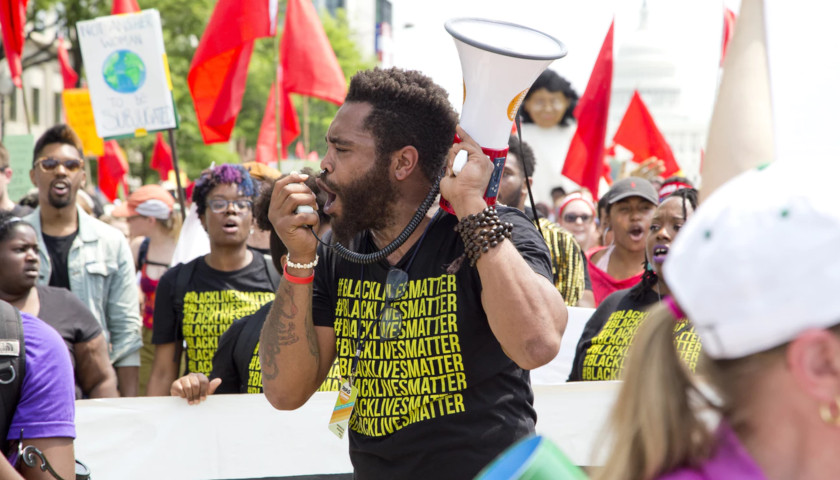by Jackson Walker
Findings from a new North Dakota State University survey reveal that the majority of students identifying as liberal or liberal-leaning are not proud of America.
In response to the question “Are you proud to be American?” 57 percent of liberal identifying students answered ‘no’. This is in contrast to the 73 percent majority of conservatives who answered ‘yes’ to the same question.
This response was generated from a nationwide survey which asked over 400,000 students from more than 1,000 American college campuses questions about their feelings on a number of social and political issues. NDSU publicly announced the survey on Thursday.
Campus Reform reached out to NDSU professors John Bitzan and Clay Routledge, the survey designers, who explained their surprised reaction to the data.
“This is a surprising result. Previous work done by Clay Routledge shows that most Americans are proud to be American, regardless of political party, gender, race, religion, income, or employment status. We don’t know why college students answered in this way, but the differences between answers by college students and the general population on a very similar question seem to suggest something unique that is worth further exploration,” the professors jointly commented.
The annual survey, released by the Sheila and Robert Challey Institute for Global Innovation and Growth, is conducted each year in order to measure and identify problems within aspects of the college experience such as freedom of speech and diversity.
The first of three sections of survey questions, which focused on campus viewpoint diversity, showed a sharp contrast between the way students view free speech. When asked if a student who makes an offensive comment should be reported to the university, 76 percent of liberals agreed that they should, while a similarly large percentage of conservatives felt they should not.
In the second section of questions, the survey asked students about human progress, the future, and national pride. It was this section that demonstrated a lack of patriotism from liberal students.
Relatedly, the survey found that liberals’ attitudes towards the U.S. is greater influenced by higher education than that of conservatives. 81 percent of liberal respondents answered ‘yes’ when asked if their perceptions of the U.S. have developed in college compared to the 44 percent of conservatives who said ‘yes’ to the same question.
Media affairs at NDSU did not respond to a request for comment from Campus Reform on Thursday.
A prompt in the third section of questions centered around economics. Here, 61 percent of liberal students have a negative view of the country’s economic system. Only nine percent of liberals answered in favor of capitalism, while 30 percent remained indifferent.
Later questions in the section addressing socialism found a much more favorable reception among liberal respondents, however. 47 percent had a positive association with socialism, while only 13 percent felt negatively about it.
The survey also showed that liberal students believe socialism to be the solution to many of the world’s problems. 65 percent of liberal respondents agreed that a social government could help solve major problems such as climate change and poverty.
From the survey data, Bitzan and Routledge were able to identify action steps that universities can take to combat some of the negative responses from students.
“Results from this survey suggest that U.S. colleges and universities can do a better job in educating students on progress that has been made, in enabling a climate that is open to a competition of ideas, and in giving students confidence in their own abilities to make a difference in the world,” they told Campus Reform via email Thursday.
– – –
Jackson Walker is a Wisconsin campus correspondent. In addition to Campus Reform, Jackson writes for The College Fix and is the editor of the arts section of The Badger Herald. Outside of classes at UW Madison, where he is studying Journalism and English, Jackson keeps busy with his involvement in the UW Marching Band.









This is my comment to this nobody is keeping you here in America, pack your bags and go somewhere else and see if it gets any better for you.
As soon a Republicans get back in power, stop all federal funding to universities, suspend all government backed student loans. Close the Federal Department of Education. Declare all teachers unions illegal.
What else can one expect when they are filled with socialist propaganda for 12 years of public schooling before heading off to that great socialist establishment called college? My wife and I learned early on in college to parrot what the leftist professors wanted in order to get a decent grade. But thankfully we did not lose our moral compass. The process was repeated with our children and grandchildren but they had to withstand even bolder efforts to tear down American values by their indoctrinators.